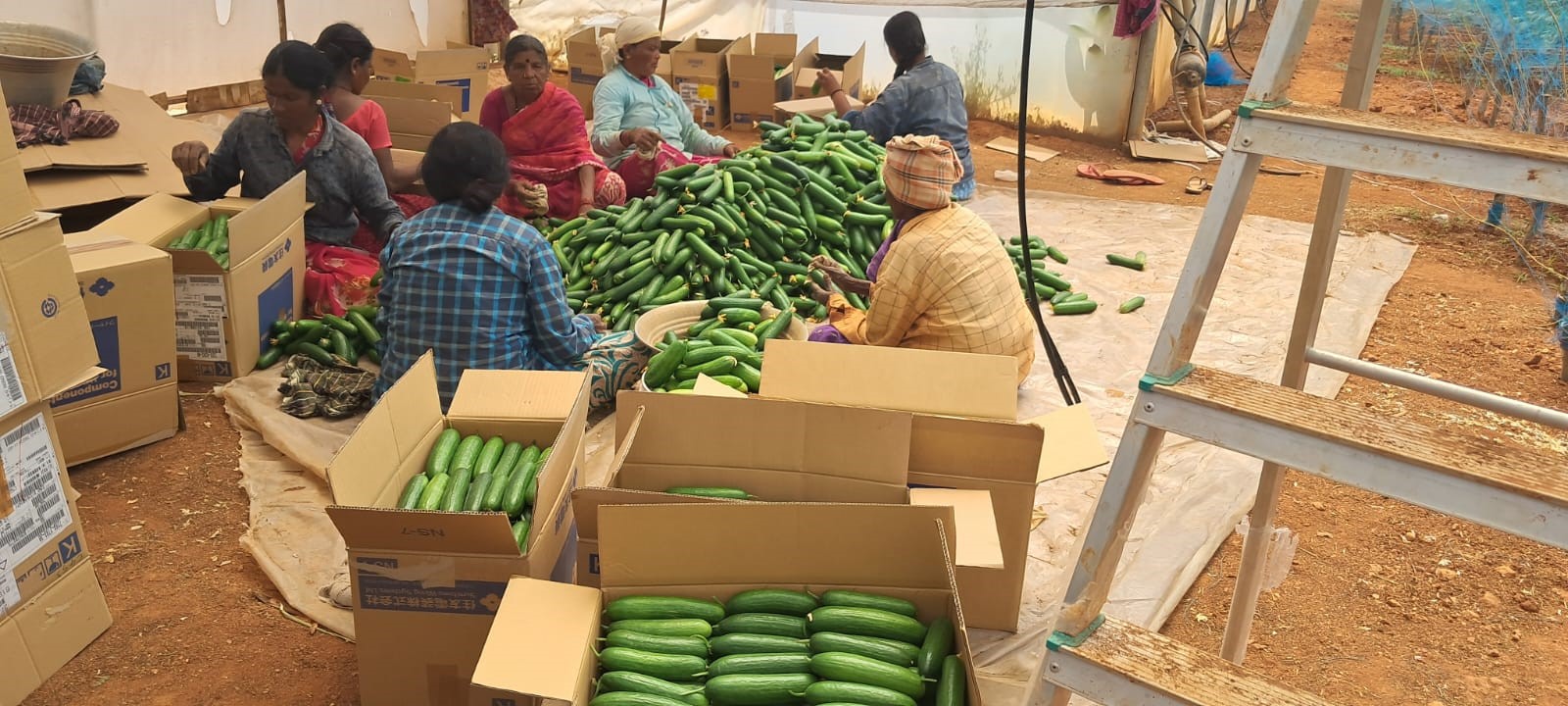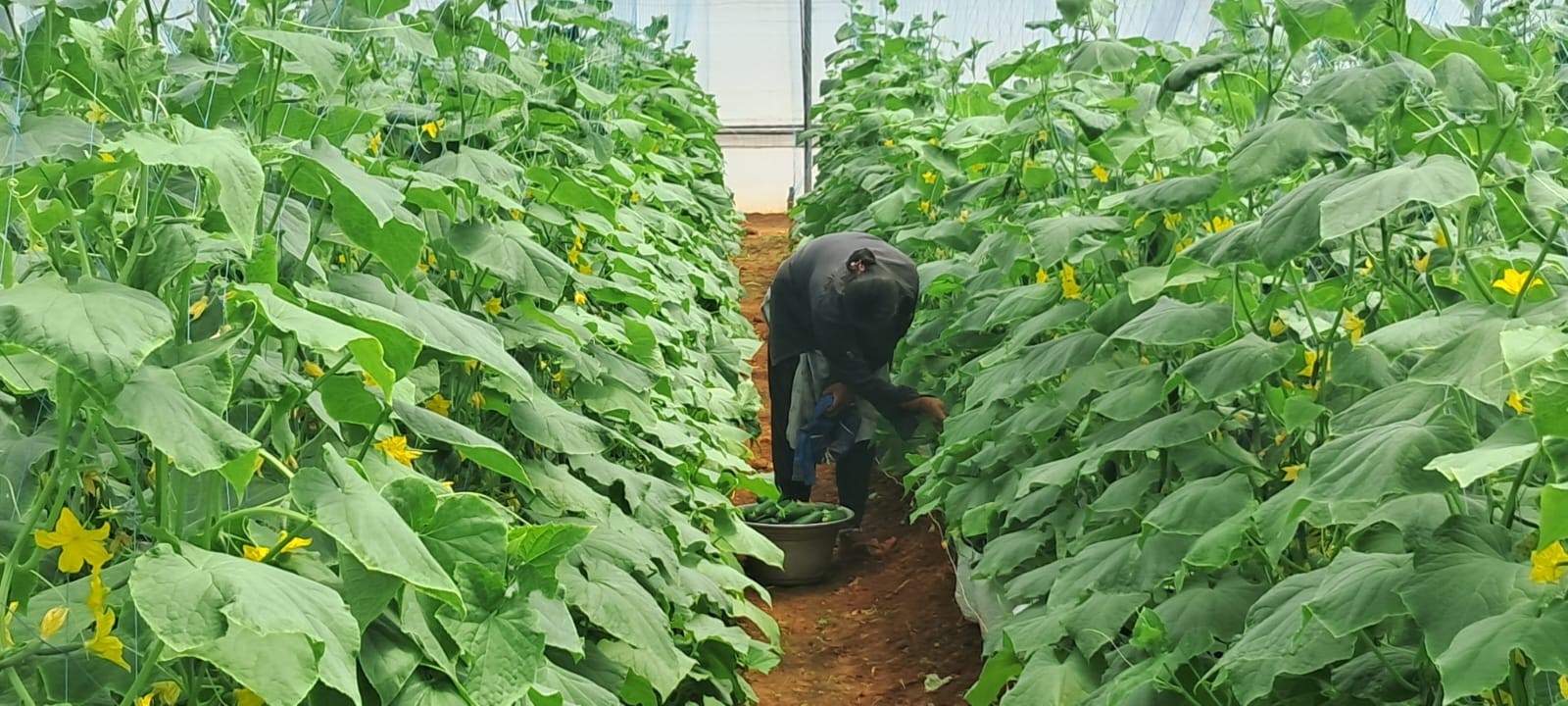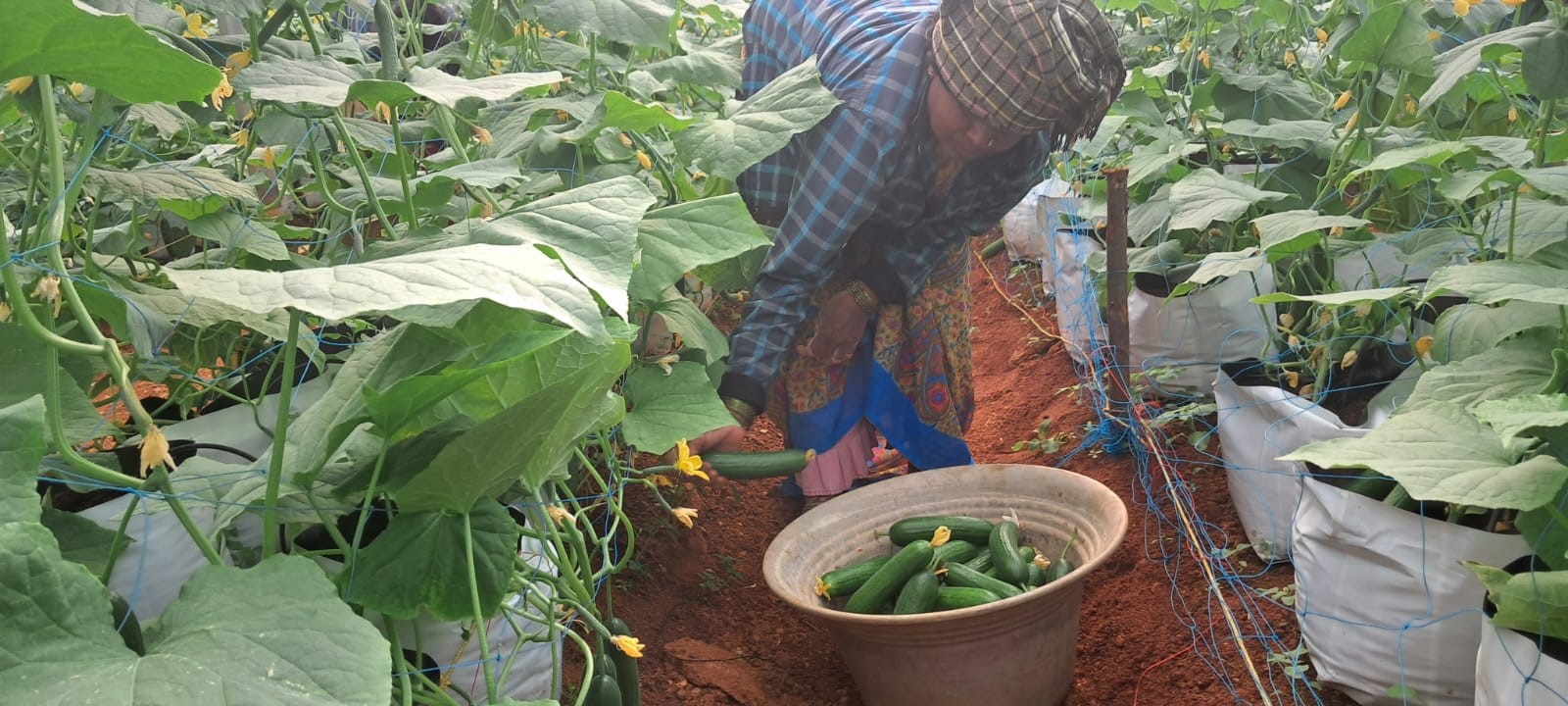Polyhouse Project
Introduction
Nestled within the vibrant cityscape of Chennai, amidst the rhythm of urban life, lies a beacon of agricultural innovation – the IGO Polyhouse Project. A visionary endeavour by IGO Agritech Farms, this project heralds a new era in farming practices, leveraging advanced polyhouse technology to redefine the boundaries of agricultural productivity and sustainability.
Understanding Polyhouse Farming
Polyhouse farming epitomizes a paradigm shift in agricultural methodologies, transcending the limitations imposed by traditional farming practices. By encapsulating crops within transparent structures, polyhouses create a microcosm of ideal growing conditions, shielding delicate plants from the vagaries of external environments while allowing meticulous control over vital parameters such as temperature, humidity, and light exposure. This mastery over environmental variables empowers farmers to cultivate high-value crops year-round, unfettered by seasonal constraints.

IGO Agritech Farms: Pioneers of Polyhouse Technology
At the vanguard of this agricultural revolution stands IGO Agritech Farms, a trailblazer committed to pushing the boundaries of agricultural excellence. With an unwavering focus on innovation and sustainability, IGO has emerged as a pioneering force in the adoption and optimization of polyhouse technology. Through relentless research and development efforts, IGO has fine-tuned its polyhouse designs and cultivation techniques, achieving unparalleled levels of productivity, quality, and resource efficiency.
The Advantages of Polyhouse Farming
- Protection from excess rainfall, wind current, scorching sunlight and extreme cold conditions.
- It can be erected on unproductive soil.
- Under minimum space one can have a maximum production of crop plants.
- Humidity is maintained.
- Efficient use of co2.
- Minimum labour requirement.
- Minimum use of water and fertilisers.
- Maximum use of space.
- A single person can have control over thousands of plants diseases and pests.
- Water can be used economically.
- Production of crop throughout the year.

Types of Polyhouses:
- Naturally Ventilated Poly House System
- Fully Closed Poly House System
Naturally Ventilated Polyhouse System
Naturally ventilated polyhouse systems represent a modern approach to sustainable agriculture, seamlessly blending traditional wisdom with innovative technology. Unlike conventional polyhouses relying on mechanical ventilation, these structures harness natural elements such as wind and solar radiation to regulate temperature and humidity levels, promoting optimal growing conditions for crops. By strategically incorporating features like roof vents and sidewall openings, naturally ventilated polyhouses facilitate passive airflow, reducing energy consumption and operational costs while promoting better air circulation and moisture management.
This passive ventilation not only enhances crop health and productivity but also minimizes the risk of fungal diseases, making these systems well-suited for diverse climatic conditions. Moreover, through educational initiatives and training programs, farmers can be empowered with the knowledge and skills to implement and manage naturally ventilated polyhouse systems effectively, further promoting sustainable agricultural practices and fostering a culture of innovation within the farming community.


Temperature Controlled polyhouse system
Temperature-controlled polyhouse systems epitomize the pinnacle of precision agriculture, leveraging advanced technology to create optimal growing conditions for crops year-round. These cutting-edge structures are equipped with sophisticated climate control mechanisms, allowing farmers to regulate temperature levels with unparalleled precision. By harnessing a combination of insulation, ventilation, heating, and cooling systems, temperature-controlled polyhouses ensure that crops thrive regardless of external weather fluctuations.
Temperature-controlled polyhouse systems herald a new era of agricultural productivity and sustainability, where technology and innovation converge to cultivate a bountiful harvest while preserving natural resources for future generations.
Conclusion
In conclusion, the IGO Polyhouse Project embodies the spirit of agricultural innovation and resilience, transcending the confines of traditional farming practices to forge a brighter, more prosperous future for Indian agriculture. As the torchbearer of technological advancement and ecological stewardship, IGO Agritech Farms catalyses a transformative paradigm shift in agricultural practices, heralding an era where innovation, sustainability, and prosperity converge to cultivate a bountiful harvest of progress and possibility.






